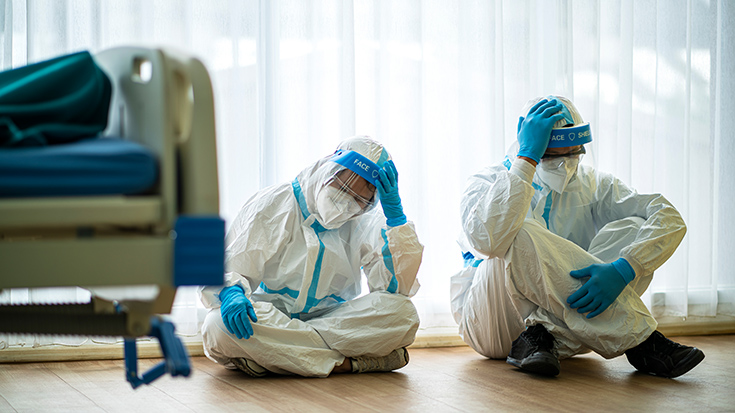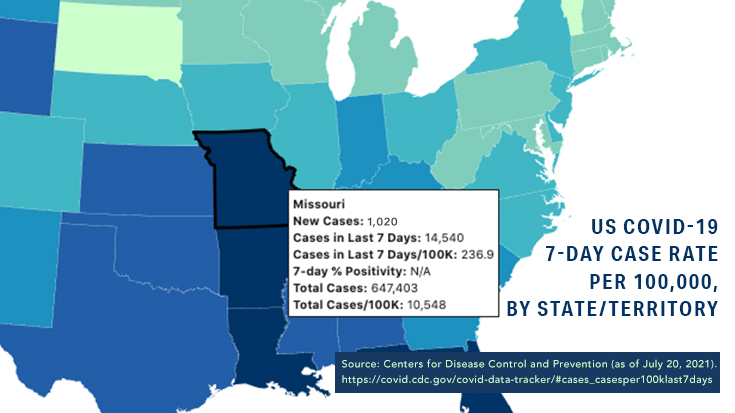
Defining the role of a Respiratory Therapist
What is the role of a respiratory therapist? Some view us as the person giving nebulizers to their grandparents or children. Some call us “that person who helps me breathe better” or “the one that helps me with my CPAP at home. “And if we are lucky, we may even be known as the person who helped our patients figure out why they couldn’t breathe by performing a series of diagnostic tests or teaching them how to properly breathe during exercise in a pulmonary rehabilitation class.
Only recently have we been acknowledged for our work in the intensive care units for running the ventilators. We certainly all know what we do; the countless hours of running up and down the hallways with life-sustaining and saving equipment, intubating, educating. Being in a delivery room, waiting for the premature baby we know might need compressions or surfactant, running to the emergency room to help obtain a patent airway for the trauma that just came in. We insert arterial lines1 and draw arterial blood gasses. Respiratory therapists are specialists in pulmonary care. We are responsible for a variety of things to help our patients fight a multitude of respiratory illnesses and diseases. Still, one thing no one thinks about us doing is giving a vaccination.
How can we help?
As COVID-19 became more prevalent within the United States, we, as clinicians, have been asking ourselves, what is next? How will this affect me or my loved ones? What can I do to help?
I personally have worked in a few different settings as a respiratory therapist over the years, including home care with home oxygen and CPAP/BiPAPs, pulmonary rehabilitation, and acute care in a hospital. I love providing patient care. But I know there is more that I can do to help my patients. And that is to offer some hope. Researchers for pharmaceutical companies have been working for decades to do the same.2 And now, more than ever, I feel that we, as respiratory therapists, have an opportunity.
Not only can we teach our patients how to recover and manage their respiratory illnesses within their homes, clinics, and hospitals, but since Mar. 12, 2021, we can also provide COVID-19 vaccinations3 and boosters under an amendment to the Public Readiness and Emergency Preparedness (PREP) Act Declaration.
Hit the ground running
Since most of our state licensure acts did not already allow for RTs to administer vaccines (or at least clearly state that it was acceptable), this expansion made by President Biden had me singing from the rooftops. I thought, “Finally, we are being recognized as being competent and able to help fight COVID before our community needs a ventilator.”
I immediately wanted to start doing this, as did most of the respiratory department at my hospital. And why wouldn’t we? By finding a community partner to allow us to help administer vaccines, we would be able to help educate people before they end up as our patients in the hospital. In addition, it would help promote our profession, form and initiate best practices in respiratory therapy services, and allow our state to use us as an optimal resource.
So, I gave our local Health Department a call, spoke with the director, and asked her if she had any knowledge of President Biden’s statement. I shared the AARC article that explained the White House briefing, and she was also immediately on board. She mentioned that her staff was gearing up for a large vaccination clinic site and would need our help. From that point on, several respiratory therapists from Casper, WY, have been consistently administering COVID-19 vaccinations and boosters.
Caitlin M. Dixon, RN, BSN, a nurse we have worked with at the Health Department, said, “It is no surprise to me that some of the RTs I know were some of the first people to jump on board with vaccinating our community against COVID. They saw the simple solution of vaccination to help combat this horrible disease. RTs administering vaccines for both COVID and influenza have absolutely been imperative to the overall health of our community!”
How do we expand our role?
So how do we expand the respiratory therapist’s role in vaccination delivery across the board? Despite the statement released by President Biden, many of my own state’s health service offices refuse to allow respiratory therapists to help with the administration of vaccines, offering no explanation other than only nurses were allowed to administer them. I mentioned before that RTs draw ABGs. So, if we are allowed to poke around in someone’s artery, why aren’t we allowed to give a vaccine to help protect against a respiratory illness?
Health professionals, such as ourselves, are guided by a scope of practice, which defines the types of services or activities we may or may not engage in based on our qualifications. Unique to each state, SOP parameters are developed through state law and professional board regulation.4
Expanding our role will require us all to investigate our individual state’s specific licensure laws related to our scope of practice. In addition, we need to speak with our local institutions, respiratory managers, and medical directors to discuss our ideas to expand our practices and/or tasks, and solicit their opinions, so potential challenges that need to be overcome can be understood.5 We also need to speak to our state legislators so they understand the importance of what we do within our hospitals and how we can be of service to our communities in the fight against COVID-19.
References:
- Pack S, Hahn PY, Stoller JK, Mummadi SR. Respiratory Therapist-Managed Arterial Catheter Insertion and Maintenance Program: Experience in a Non-Teaching Community Hospital. Respir Care. 2017;62(12):1520-1524. doi:10.4187/respcare.05486
- Center for Disease Control and Prevention (CDC). Understanding mRNA COVID-19 Vaccines. https://www.cdc.gov. Published November 3, 2021. Accessed December 1, 2021.
- White House. Fact Sheet: President Biden Expands Efforts to Recruit More Vaccinators. www.whitehouse.gov. Published March 12, 2021. Accessed December 1, 2021.
- Addie Schiefer, All for Patient Care: Practicing at the Top of Your Scope. https://www.aarc.org. Published March 24, 2021. Accessed December 1, 2021
- The Network for Public Health Law. Expanding Scope of Practice for Health Care Providers: Improved Access and Cost Savings for Patients. Published February 28, 2019. Accessed Dec. 4, 2021.
Email newsroom@aarc.org with questions or comments, we’d love to hear from you.
















